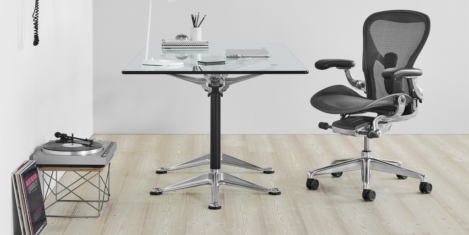March 11, 2013
Homeworkers happier but more at risk from poor ergonomics
 Amidst all the controversy over flexible working raised by the infamous Yahoo homeworking ban comes US research revealing homeworking policies lead to happier employers and employees. 93 percent of employees surveyed by Staples Advantage agree that telecommuting programs are mutually beneficial, and more than half 53 percent of business decision makers said telecommuting leads to more productive employees. However, the survey also reveals that 48 per cent of telecommuters use furniture or technology that is not ergonomically adjusted for them, which can lead to discomfort, loss of productivity or injury. (more…)
Amidst all the controversy over flexible working raised by the infamous Yahoo homeworking ban comes US research revealing homeworking policies lead to happier employers and employees. 93 percent of employees surveyed by Staples Advantage agree that telecommuting programs are mutually beneficial, and more than half 53 percent of business decision makers said telecommuting leads to more productive employees. However, the survey also reveals that 48 per cent of telecommuters use furniture or technology that is not ergonomically adjusted for them, which can lead to discomfort, loss of productivity or injury. (more…)



























March 1, 2013
Working ‘proper hours’ may no longer be possible
by Mark Eltringham • Comment, Knowledge, Workplace
(more…)